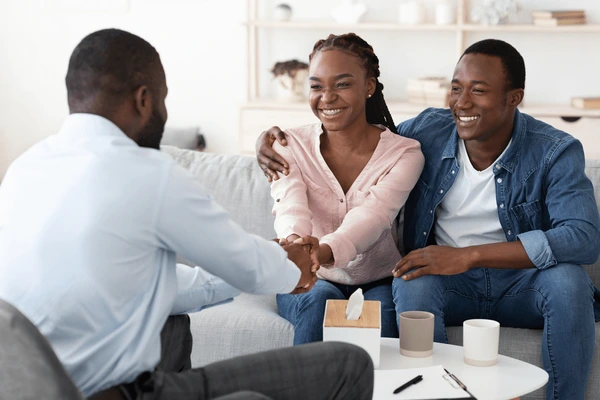Relationship
How to make your home more romantic

You don’t always need to go outside your home for a romantic getaway. You can create a more romantic home that can remind you of the love that you share with each other each passing day.
In this article, we share some best design tips to help create a more romantic home from your bedroom and beyond.
Declutter
This is not the most enjoyable chore for many people. However, nothing kills romance faster than clutter. So if you’re really bent on creating a more romantic abode, then your piles of random things on the various surfaces around your home should be the first things to go.
Decluttering will free up more space for you to add other decorative elements. Once you’re done decluttering, yon can now move on to feature your favourite home interior accessories to achieve that romantic look.
Lighting
Lighting can drastically change the look and mood of your home in an instant. The warmer and dimmer the lights the more intimate it will feel, and thus, more romantic.
Don’t be afraid to experiment with different lighting pieces that match your style. However, creative lighting does not mean you should settle for the types beyond your budget. Try to keep it simple but significant.
Wall Art
Another decorative element that can definitely set the mood in any interior space is wall art. It may be ideal to use photos taken during particularly memorable moments in your relationship such as your wedding or first date.
You may as well choose memorable words such as a favourite line from your vows or an inside joke that only the two of you share.
Cushion Covers
It is said that the more pillows you have, the more cuddling opportunities you’ll get. However, a pile of plain pillows can easily get boring. Hence, dress them up with stylish cushion covers. Choose soft colours in interesting textures over bright-coloured colours and patterns. And pile them together with layers of cozy blankets.
Candles
Candles are usually categorised under lighting but they can stand alone as another kind of decorative element. Scented ones can add up to the romance factor. Sweet, sugary scents like cinnamon, and vanilla are but a few of the options available.
Flowers
Natural flowers such as red roses symbolise love, passion, and romance. There’s a reason roses are given during Valentine’s Day. Other flowers are fluffy, delicate, and stunning and may be perfect for keeping things more ‘personal and intimate.’
Indeed some cultures consider certain kinds of flowers a good luck charm. It wouldn’t hurt to have that ‘extra luck’ around if you’re about to have a romantic dinner to patch things up.
Apart from their beautiful and natural outlook, flowers are considered a symbol of attraction and could go a long way to spice up the romantic atmosphere at home.
In conclusion, it must be emphasised that keeping your home neat and tidy is the first step towards creating a more romantic atmosphere at home.
Choose home accessories that show elegance but in more subdued colours and patterns. And remember that candles are more than just pieces for mood lighting. Their scent can stimulate the senses and create and add passion to any home. The same applies to flowers.
Relationship
What you should expect to learn in pre-marital counselling

- Pre-marital counselling involves couples coming together for joint therapy sessions
Many times, pre-marital counselling involves couples or partners coming together for joint therapy sessions. Working with a qualified marriage counsellor or therapist, you will learn skills to help improve your relationship as a couple.
At the same time, it is not all pre-marital counselling that leads to marriage. It is possible that certain discoveries (and major red flags) could emerge during the counselling sessions, and for that reason one of you may want to discontinue the marriage process so as to avoid any future regrets.
From my experience and professional practice, I would say that no matter how painful it is to break up a relationship prior to marriage; it is still far better to do that than to break up your marriage relationship.
The marriage breakup has more serious implications than any pain that could emerge from relationship break up.
In some instances, the specific topics to be explored and skills to be developed in your pre-marital counselling sessions will depend on your needs as a couple.
Despite this, I would give you all the topics and skills to expect your counsellor to take you through in order to have a happy and lasting relationship.
Even if you are not considering pre-marital counselling at the moment, you can still benefit from these skills and topics. They are also an excellent way to create depth in your conversations and build a solid healthy foundation in the early stages of your relationship.
Not in any specific order, I would like you to take note of these important skills and lessons you will learn in your sessions: 1 understanding the concept of marriage, 2 building a strong foundation for your marriage, 3 examining your expectations leading to your marriage, 4 undergoing medical tests and sometimes mental health assessment, 5 resolving conflicts together, 6 communicating openly and effectively, 7 taking decisions as a couple, 8. building a strong Christian home (if you’re Christians), 9 building transparency and trust, 10 knowing yourselves: your strengths and weaknesses—and how to improve them, 11 building commitment towards the marriage and each other, 12 accepting your unique roles and responsibilities in your marriage, 13 planning your future together, 14 sexual intimacy in marriage, 15 bearing and raising children, 16 understanding the concept of love, 17 the role of love languages in experiencing marital happiness, 18 managing your home finances, 19 defining your beliefs and values, 20 adjustments in marriage, 21 balancing love, work, and family life, 22 relating with your in-laws and third parties, 23 creating your unique marriage and family rituals, 24 engaging married couples to learn from them, 25 understanding divorce and what causes it, 26 Christian view on divorce, 27 preparing for your marriage ceremony, 28 planning for your honeymoon and how to maximise it, and finally, 29 making your first year of marriage count.
To be continued …
Source: Excerpts from ‘Preparing for a Happy and Fulfilling Marriage’ Book by REV. COUNSELOR PRINCE OFFEI (Psychotherapist and Marriage Therapist). https://counselorprinceass.wixsite.com/edu-counseling-psych
https://princeoffei22.wixsite. com/website-psychologist
https://princeoffei22.wixsite. com/website
COUNSELOR PRINCE & ASSOCIATES CONSULT (CPAC COUNSELLOR TRAINING INSTITUTE)
Relationship
Tips for creating healthy working relationships
We spend around a third of our lives at work. Our jobs and careers make a real impact on our overall levels of happiness. Having good work relationships will always make our jobs more enjoyable
Also, when we have great workplace relationships we will demonstrate cooperation, trust and fairness, activating the reward centre of our brains which encourages even more positive interactions.
Here are some tips to create healthy relationships at the workplace.
1. Focus on self-awareness
This means taking full responsibility for your words and actions, not letting your own negative emotions impact the people around us.
If you feel frustration or resentment towards others this will manifest in what you observe and the way you engage.
By developing your own Emotional Intelligence, you will become more adept at identifying and handling your emotions be able to recognise the needs of others.
Again, if you view colleagues with compassion and respect, you will improve your interactions and build strong working relationships.
What would happen if you stopped making judgments and embraced a positive appraisal of your co-workers? If we saw difference as something valuable that could be harnessed and actually enhance your perception and understanding of those around you? Your vibe will always attract your tribe.
2. Be open and honest
A good relationships depend on open, honest communication. Whether you are sending emails or meeting face-to-face or on video calls, the more effectively you communicate with those around you, the better you will connect. It is important to identify the nature of your relationships with others.
What is it that we need and what do our colleagues need from us? Once you know the fundamentals of what you need you can be clear with communicating and better understanding each other’s requirements.
3. Practice active listening
Good people skills are essential. How good are you at collaborating, communicating and managing challenge? People respond better to those who truly listen to what they have to say. By practicing active listening, you will talk less and understand colleagues more and you will quickly become trustworthy and have more successful interactions.
One key skill you can forget when listening is the power of a good question. Active listening is engaging in what you hear, asking questions such as ‘What would you like to happen?’ How can I help you address that? Shows you listen and you care.
4. Avoid bad people skills
Good people skills mean avoiding the bad people skills. Gossip and negativity can ruin any workplace relationships. If you are experiencing challenge with someone in your group, talk to them directly and kindly about the problem, be prepared to listen attentively and objectively.
Gossiping or colluding with other colleagues will only aggravate the issues, accelerating mistrust and animosity.
5. Give praise and feedback
Everyone wants to feel that their work is appreciated and to feel truly valued. Genuinely complimenting the work and actions of those around you is a great way to build relationships.
Be honest, precise and authentic when delivering praise. Thank you or a gentle word of encouragement can make all the difference to someone’s day. These positive interactions can have a ripple effect and create a much happier and more successful workplace







